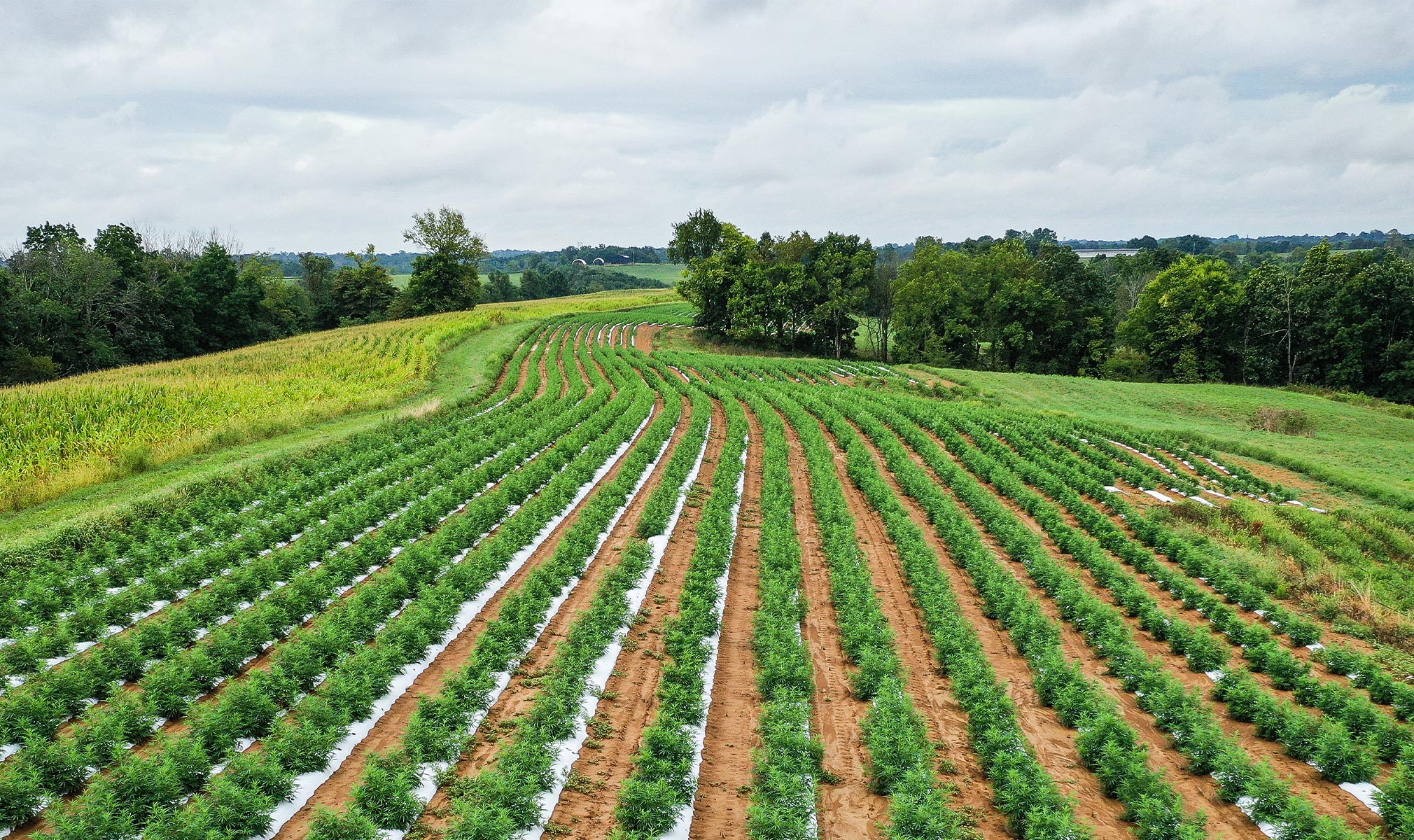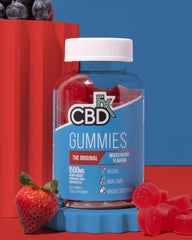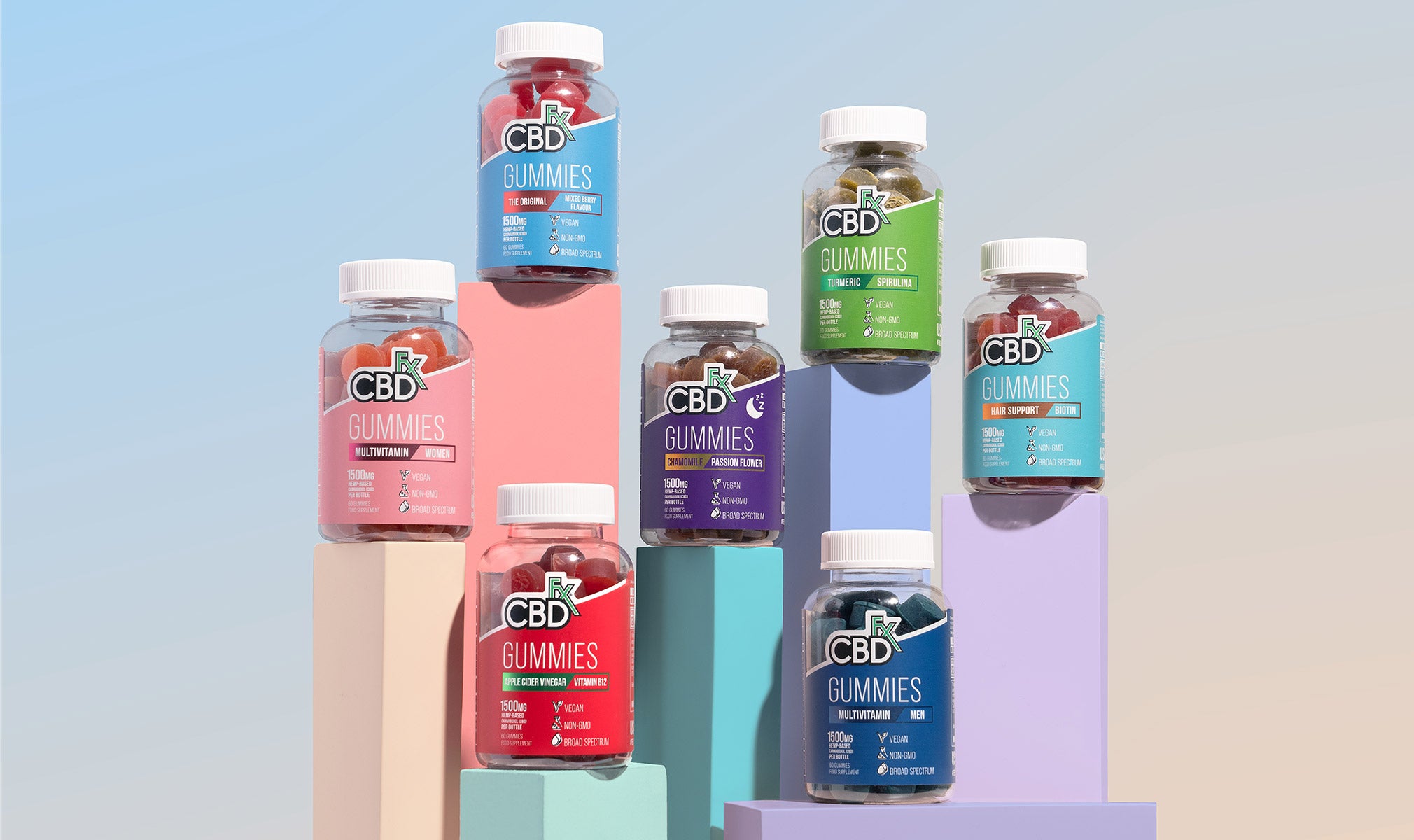Cannabis is cannabis, right?
Wrong!
There’s a big difference between the cannabis plant we call “hemp” and the sticky icky we know as marijuana. These two plants might seem like the same thing. Certainly, both hemp and marijuana have those familiar five-fingered leaves. But there’s a world of difference between the two, and when you’re shopping for CBD products it’s important to understand that distinction.
Let’s take a look at what exactly cannabis is, and then break down the differences between hemp and marijuana. And while we’re at it, let’s learn a little something about cannabinoids, including the popular supplement, CBD.
Hemp vs. Marijuana: What Is Cannabis?
Cannabis is a tall, flowering plant from the Cannabaceae family. There are roughly 170 different species in the Cannabaceae family of plants. The cannabis genus itself originated in Central Asia, around Mongolia and parts of Siberia. Because of its many uses, cannabis became popular among several ancient cultures and spread all over the world — in such diverse places as ancient India and the Scandinavian lands of the Vikings.
Cannabis is a hardy plant that can survive in a variety of climates. The tenacity of the cannabis plant makes it a good bioaccumulator, meaning that it absorbs nutrients and anything else it can pull from its neighboring soil. (There’s a reason people call cannabis “weed.”) Because of this tenacity and the plant’s incredibly wide range of uses, cannabis has been an important part of human history for 10,000 years.
Hemp vs. Marijuana: Cannabis and Cannabinoids
Cannabis has tiny glands on its surface, known as trichomes. These trichomes produce chemical compounds known as cannabinoids (as well as terpenes and flavonoids). There are over a hundred cannabinoids found in the cannabis plant, including CBD, THC, CBG, CBC, CBN and many more). The purpose of these cannabinoids is to protect the cannabis plant and allow it to flourish. They protect the cannabis plant’s surface from hazards of the elements, as well as insect predators. Cannabinoids also attract pollinators, helping to perpetuate the species.
Hemp vs. Marijuana: The Endocannabinoid System
As it turns out, these same plant-based cannabinoids (phytocannabinoids) have remarkable effects on the human body. Humans and other vertebrates have a cell-signaling system in their bodies called the endocannabinoid system. This system creates its own cannabinoids, called endocannabinoids. Endocannabinoids are neurotransmitters, which attach to receptors in the central and peripheral nervous systems, as well as other systems and organs in the body, and help them to maintain homeostasis, or balance. The cannabinoids produced by the cannabis plant mimic this effect when introduced to the body.
Hemp vs. Marijuana: CBD and THC
One of the two most prominent cannabinoids produced by the cannabis plant is cannabidiol, or CBD. Cannabidiol signals to a variety of receptors throughout the body to bolster the body’s ability to maintain homeostasis, bringing a wealth of benefits. Because of these benefits, as well as the fact that hemp-derived CBD is non-intoxicating, CBD has become a popular wellness supplement.
The other major cannabinoid is tetrahydrocannabinol, or THC. THC signals largely to receptors in the brain, affecting mood, sleep, and appetite, among other things. In doing so, it can create a kind of euphoria, which we call “getting high,” for shorthand. It is these psychoactive tendencies of THC that have put it on the wrong side of the law in the UK and other countries.
All of this is important to note as we address the difference between hemp and marijuana.
The Difference Between Hemp and Marijuana

I know we’ve danced around the question a bit to this point, but it’s important to understand what cannabis is, and to know about cannabinoids (especially THC) before diving into the difference between hemp and marijuana. In short, hemp and marijuana are both kinds of cannabis plants. But neither hemp nor marijuana are their own individual species of cannabis. By the standards of science, hemp and marijuana are both the same plant: cannabis.
Instead, the distinction between hemp and marijuana is largely informed by the law: cannabis with less than 0.3% THC is called hemp, cannabis with more than 0.3% THC (often much more) is called marijuana. Marijuana and its high THC content can get you high. Hemp cannot.
But why 0.3%?
Hemp vs. Marijuana: Cannabis and the Law
In earlier times, high-THC cannabis wasn’t illegal. In fact, it had been used for centuries, just as low-THC cannabis (hemp) had been. Still, in the early 20th century, all cannabis — hemp and marijuana — ended up lumped together under UK law as a controlled substance.
But there was still a distinction, in terms of usage. Hemp has been used for millennia for everything from rope and paper manufacturing to therapeutic purposes. It seemed like common sense to try to distinguish hemp from marijuana in the eyes of the law. An author named Ernest Small proposed 0.3% THC as the dividing line between the two in his 1979 book, The Species Problem in Cannabis: Science & Semantics. This percentage should be well below intoxicating levels, according to Small, meaning that anyone with access to hemp couldn’t possibly use it to get high.
His proposal was embraced, influencing hemp laws in many countries, making production, manufacturing and distribution of hemp-based products (like CBD) legal with certain restrictions.
Hemp and Legal THC Levels in the UK
Although the 0.3% THC threshold is legal for hemp-derived products in the US, the legal threshold in the UK is 0.2%. For this reason, the oil directly extracted from the hemp plant, known as full spectrum CBD oil, cannot be sold legally in the UK. Instead, an extra filtration process is used to remove all detectable traces of the THC, resulting in an oil called broad spectrum CBD oil, which is legal in the UK.
Hemp vs. Marijuana: Cannabis and CBD Products
Now that hemp-derived CBD is legal in the UK (with less than 0.2% THC), people are free to enjoy its many benefits. Yes, those certainly include all of the textile uses and other related manufacturing usages. But now people can also take advantage of the vast wellness potential of CBD.
There do exist marijuana-derived CBD products, as well. But these products can usually only be purchased in marijuana dispensaries, which are illegal in the UK. When you purchase CBD in a store or online, that CBD is derived from the hemp plant (assuming it’s a legal CBD product, of course).
The good news is that the hemp plant is also rich in many cannabinoids, terpenes and flavonoids. The robust content of these compounds, when taken together in a broad spectrum CBD product, produces a phenomenon known as the Entourage Effect. This refers to the way the various cannabinoids and other compounds not only work individually in your system, but also actually enhance each other’s effects, allowing for a deeper, more profound CBD experience.
The Last Word on Hemp and Marijuana
It’s true that hemp oil does not have the intoxicating effect of the oil derived from marijuana, but CBD oil derived from hemp does have a wealth of wellness benefits. If you haven’t yet tried CBD and are interested, we encourage you to explore the articles in this blog, as well as the various CBD products on our site. We hope that you will find CBD to be a valuable part of your personal wellness journey.
Trying CBD for the first time? Try our classic Mixed Berry CBD Gummies!






